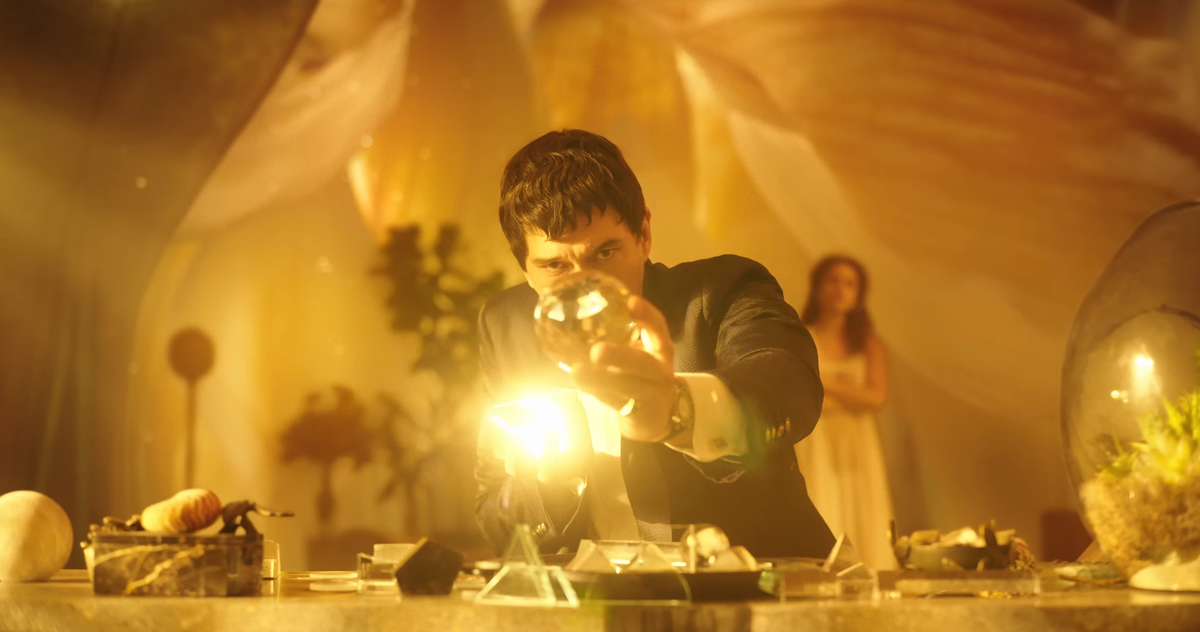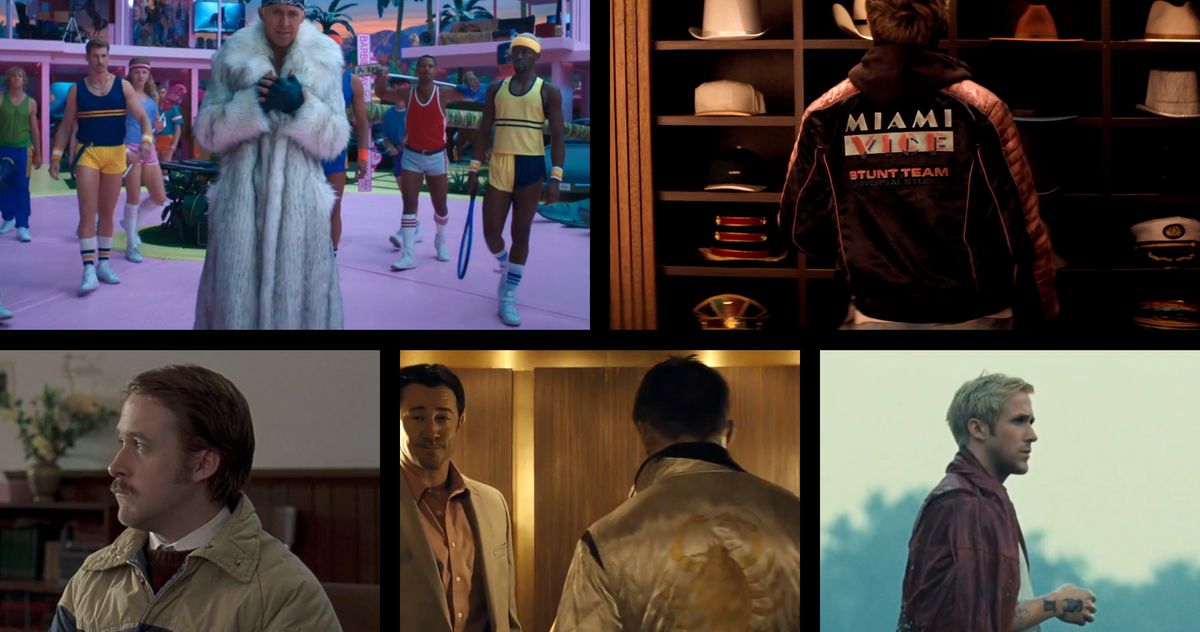What’s going on with the guy who stands up in the audience and talks to the screen? Is Francis Ford Coppola broke now? And many other questions.
Photo: Francis Ford Coppola via YouTube
Francis Ford Coppola’s Megalopolis is a baffling object. Some critics think it’s bad on purpose and some think it’s bad by accident (our own Bilge Ebiri seemed to fall somewhere in the middle). What mostly everyone seems to agree upon is that it is not coherent. This includes many of the actors, who, at the Cannes press conference on Friday, admitted to often having no idea what this movie is about, though many of them got choked up while talking about that.
“On set, I didn’t know what was going to happen. Francis allowed us to be free but then gave us a directive. I went, ‘Where is he going?’” said Giancarlo Esposito. “But at the end of the movie I came to tears…I got it: I’m not supposed to know everything. But neither is Francis.” Coppola and Jon Voight both spoke a lot about the movie offering a “vision” for the “future,” and about making things “better” for “children,” but much like the movie itself, did not offer any concrete specifics on how we might go about doing that (Coppola did say that the job of reenvisioning the entire world was not for politicians, but for artists, which is a nice idea but might be difficult considering their overall lack of institutional power and the fact that when they speak up too much we put them in jail).
Nathalie Emmanuel admitted it was “incredibly challenging at times to sort of walk toward my character because I was trying to see her the way Francis had envisioned; there was a journey to that, and I came up against myself a lot as a person and an actress.” Aubrey Plaza said that “getting into [Francis’s] mind was a trust fall for both of us,” and added mysteriously that she “had very specific things that I wanted” for her character. “I tried very hard to get them. It didn’t work out for me,” she said, smiling. “But I tried very hard.” Adam Driver, who initially said no to the script before signing on later, revealed that he actually stepped into the editing room with Coppola. “The assumption would be, you think about something for 40 years and you go in and execute because you’ve been thinking about it for 40 years. It’s the total opposite of that,” he said. “It speaks to Francis’s generosity. You have to be very generous and open to being wrong.”
After I saw Megalopolis, I felt both bored, a little pissed off, and vaguely confused; you can understand how it is subsequently hard to explain Megalopolis to someone who has not even seen it. But I will valiantly try.
What is happening in this movie?
The logline is as follows: “A genius artist with the power to stop time fights an arch-conservative mayor to save the dying modern world and inspire hope; told as a Roman Epic.” My best attempt at description would be: Giancarlo Esposito’s Mayor Franklyn Cicero is Eric Adams, irresponsibly defanged. Adam Driver’s Cesar Catalina is sort of an Elon Musk/Jeff Bezos, except hot, also irresponsibly defanged, and for some reason does the whole monologue from Hamlet on a catwalk at a city meeting. Cesar has invented a mysterious substance called Megalon; it’s never explained what that is, but it can do basically whatever and he wants to use it to build a new city. Oh, and he can stop time, and we don’t know why or how save for some vague mentions of physics, so please don’t ask me that. Shia LaBeouf’s Clodio Pulcher is sort of an alt-right chaos agent who sometimes wears dresses.
They’re all fighting over what to do with the future of New York City, known in this film as New Rome. Cesar wants to turn it into the “society if dads went to therapy” meme. Franklyn wants to keep things status quo. Shia wants to rile up the faceless, roiling proletariat and also steal a bank from pervy billionaire Hamilton Crassus III (Jon Voight) in cahoots with Crassus’s new wife, Aubrey Plaza’s money-grubbing finance reporter, literally named Wow Platinum. Franklyn’s daughter Julia Cicero (Nathalie Emmanuel) orbits both her dad and Cesar and inspires them to be better at spending their money by knowing how to accurately quote Marcus Aurelius at will and at length. Also there is a teen singing sensation (Grace VanderWaal) whose whole thing is being a virgin, and when it’s revealed she isn’t, society breaks down.
Why?
Something about ancient Rome and empires falling and reading too much Ayn Rand and how we need to have hope for America or the teen pregnancy rate will skyrocket and people will not have fun at bacchanalian parties at Madison Square Garden anymore. Coppola took inspiration from “everything I had ever read or learned about” to write this, according to the press notes, which comes across. Coppola rightly recognizes that America is in free-fall and something needs to be done, but unfortunately he thinks that “something” is to hand it over to a nice billionaire oligarch who definitely has our best interests at heart, haha, I’m scared, I really hope nobody takes this movie seriously.
Seems fine to me! What else happens?
The most frustrating thing about this movie is that it purports to be crazy and chaotic and wild, but there is no real sense of danger, narrative weight, or stakes. So many scenes just feel like the idea of themselves. What’s meant to feel strange or unsettling often just feels random and unconsidered. What’s supposed to feel hopeful or moving or inspiring feels tired and rote and ultimately meaningless in its lack of specificity, like Biden-Harris-speak. To write down some of these moments makes them sound more interesting than they actually are onscreen: Jon Voight says, “What do you think of this boner I got?” Shia LaBeouf goes down on Aubrey Plaza as he calls her “Auntie Wow.” Shia LaBeouf plots to overthrow America in a Grecian dress and gel nails. Etc.
Is it at all funny?
Aubrey Plaza and Shia are really going for it throughout; they seem to understand that if this movie could be anything, it’s camp. Unfortunately, nobody else is on this tonal page. The biggest laugh at my press screening happened when Nathalie Emmanuel’s Julia tells her dad that she’s pregnant, and if it’s a boy, she’ll name the baby “Francis.”
It is disturbing?
Yes, but not in the way that it imagines it is. Megalopolis tries hard to indicate that its version of contemporary America is morally bankrupt and depraved, with, for example, a scene where Julia does lines of cocaine off of Chloe Fineman’s tits, or a tabloid suggesting that Clodio is fucking his own sister (Fineman’s Clodia), or a bunch of haphazard scenes in which extras look angry and dirty in the streets to indicate imminent societal collapse. Unfortunately, what’s disturbing about actual contemporary America is the exact opposite of all of this. The least interesting or revealing details about the bourgeoisie are its sex and drug habits; the most disturbing thing is the proliferation and power of men like Cesar, who will destroy what’s left of our democracy with impunity and glee. Meanwhile, the real people who are angry in the streets are the only ones fighting for the actual progressive values that this film pretends to care about.
Okay, calm down. How does it look?
This movie looks cheap as hell, like the Wet Seal of Coppola films. It is not at all beautiful to behold, which is a real shame, because its ideas are bad too and, well, so is its sound. The ADR does not always match up with characters’ mouths. There is a fake baby to rival American Sniper’s in several scenes. Some of the costumes are nice and some look like Zara (no shade to Zara). Bilge sums the rest of it up here: “Crowd scenes can be sparse. Seemingly major characters drop out of the story. For all the visual grandiosity, the digital cinematography is sometimes flat and overly bright, which in turn reduces depth and detail and makes things feel one-dimensional.” Coppola sold off some of his wine business to fund the movie at a cool $120 million but it seems somehow he needed…more money???
How is the writing?
The script was rewritten at least 300 times, according to Coppola. This is apparent.
Is there an anti-semitic trope for no reason?
Yes. Dustin Hoffman plays a man named “Nush Berman,” a malevolent billionaire with a huge prosthetic nose. He gleefully pays $100 million at an auction to support the aforementioned pop star’s fake virginity.
How many Coppolas are in it?
Francis’s son Roman is second-unit director, and some great-nephew Bailey Coppola is in it somewhere, and I am certain other Coppolas are in there uncredited, because there were several children this morning at the press conference. I was very happy to see Romy Mars, Sofia’s daughter and TikTok legend, pop up as a gossipy teen reporter. This was perhaps the best part of the movie, because it reminded me to go rewatch her short film, which is a better movie than this is, about being grounded for attempting to charter a helicopter from New York to Maryland on her dad’s credit card because she wanted to have dinner with her camp friend.
What’s the deal with the guy who gets up from his seat in the middle of the movie?
A random audience member got up from his seat in the middle of the movie, brought a microphone and a little flashlight onstage, and stood in front of Adam Driver’s giant face. He lip-synced a pre-recorded question about fearing the future, and Adam Driver answered it. Then the guy walked offstage, never to be seen again. My friend who sat next to me said she assumed the guy was getting up to protest. “I was fine with that,” she said.
Will they re-create this moment if the movie makes it to theaters? How?
I have no idea. I asked the PR team but they have not answered me. I hope Francis Ford Coppola puts his money where his mouth is vis a vis raising up humanity and supporting the common man and pays somebody at every theater across the world to do this.
Wait, does the movie even have distribution yet?
No. There’s no studio buyer yet, probably because of everything I just mentioned.
So is Francis Ford Coppola broke now?
Of course not. At the press conference, a reporter asked him about his current financial situation. “I don’t care,” he said. “I never cared about money.” He went on a long tangent about how he bought his winery for $20 million during the 2008 financial crisis, incidentally pointing out how unqualified he is from a class perspective to make a movie like this. “I just took the money from that and I put the risk in the movie,” he concluded. “I have no problems with the financial … another thing. My children, without exception — Sofia, Roman, Gia — they have wonderful careers without a fortune. They don’t need a fortune. No matter what happens, aside from Inglenook, which we still own, we’re fine. It doesn’t matter.” He addressed the audience, full of journalists who all probably lost their jobs during the 2008 financial crisis and likely have zero disposable pieces of property with which to dramatically leverage their own creative whims, much less some good health insurance. “All of you!” he said. “The money doesn’t matter. What’s important are friends. A friend will never let you down. Money may evaporate.” Which is very easy to say, of course, when you have shit ton of it. Rather than telling people what should matter to them, Coppola might try asking next time.















